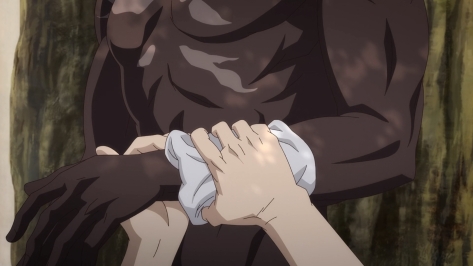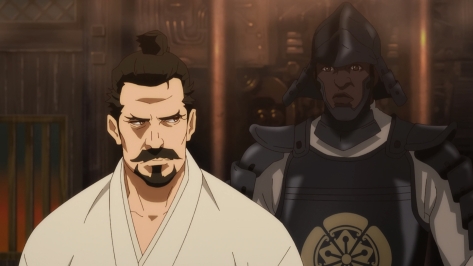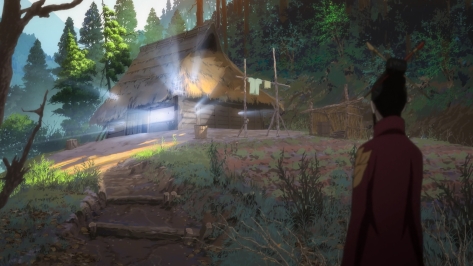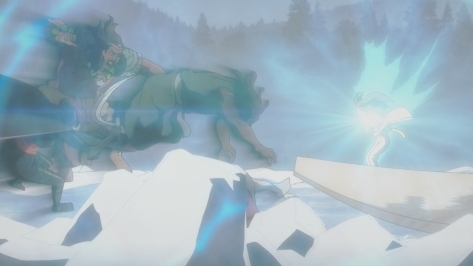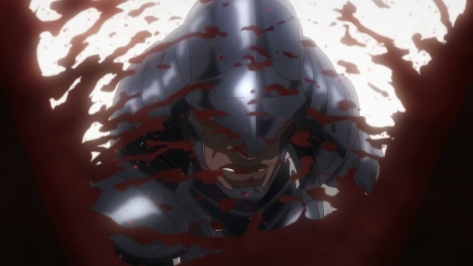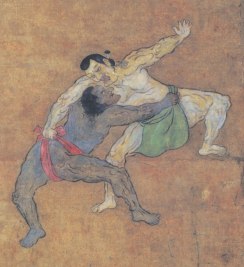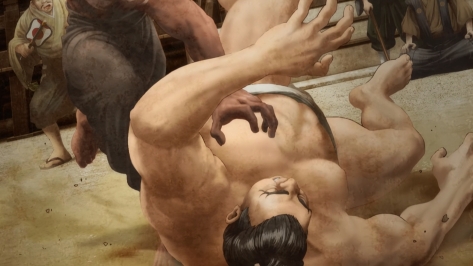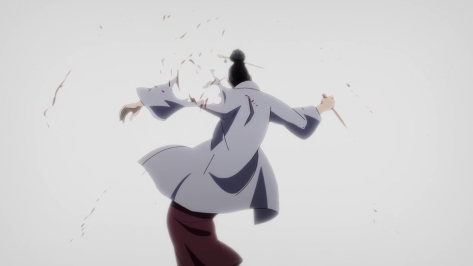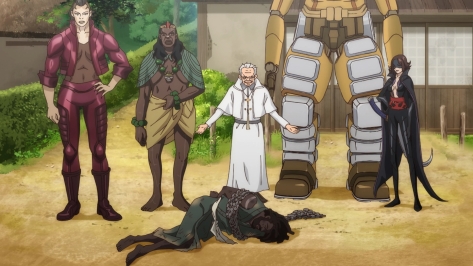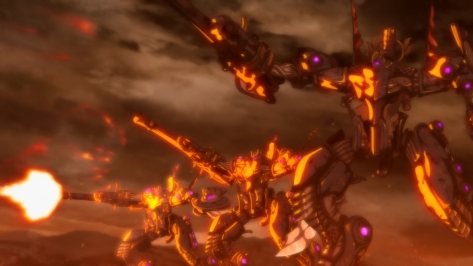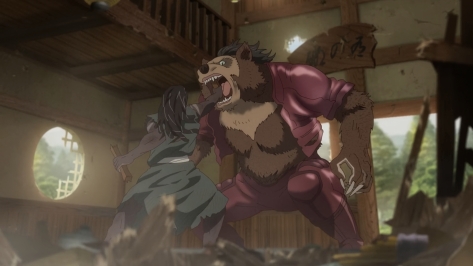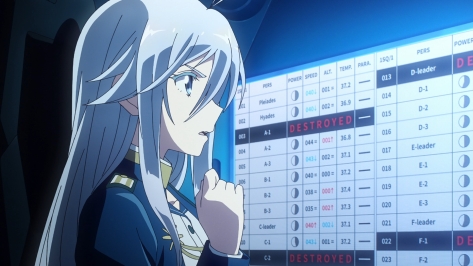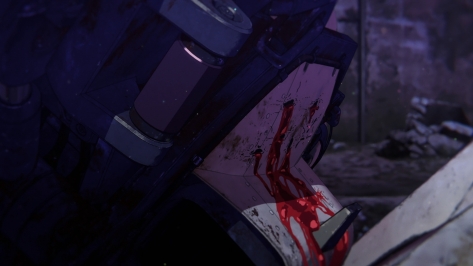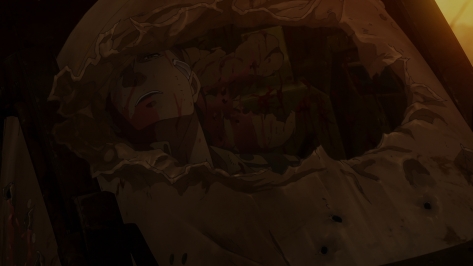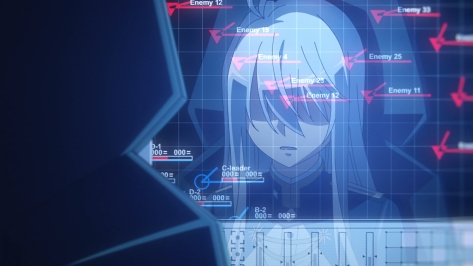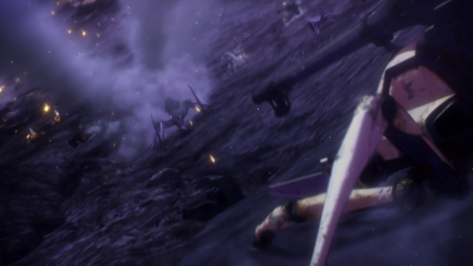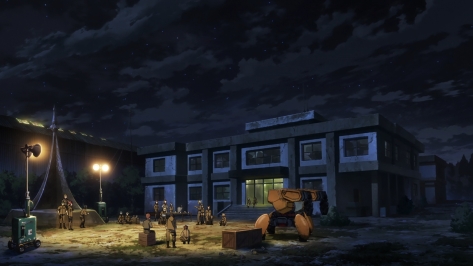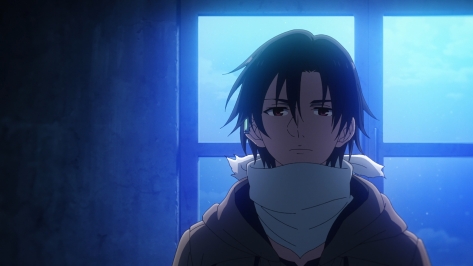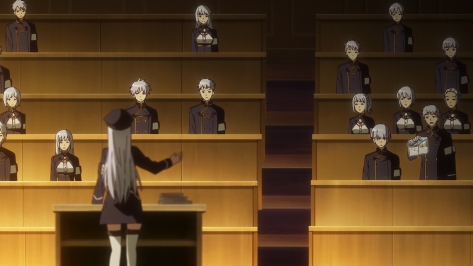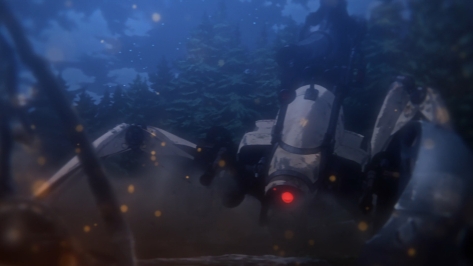Japanese Title: Yasuke
Similar: Ninja Scroll
Moribito: Guardian of the Spirit
Watched in: Japanese & English
Length: 6 episodes
Positives:
- Great animation
- Lo-fi beats you can study to
Negatives:
- Thin on character
- What’s with the robots?
(Request an anime for review here.)
Did you know that an African man served under Nobunaga in 16th century Japan? He arrived as a slave to an Italian missionary before Nobunaga bought him, fascinated by the look and strength of this foreigner. A letter from the time indicates Yasuke was likely the first black person Nobunaga had ever seen, as he had his servants try to clean the “ink” off as if his skin colour was some prank.
The historical character of Yasuke is the basis for this anime of the same name. In this, he is a samurai ronin, masterless after the death of Nobunaga. If you’ve never heard the story of Nobunaga, it is a fascinating one though for another time (I recommend the documentary series Age of Samurai: Battle for Japan to start). Short version: he was one of Japan’s greatest warriors, nicknamed the “Demon King,” and set events in motion to unify the nation. There’s a reason so many anime feature him as a character. As for Yasuke, there is no indication that he received the rank of samurai, but he was a warrior for Nobunaga by all accounts.
Historical accuracy isn’t a cornerstone of Yasuke, which is clear from the opening scene as a massive battle takes place involving samurai mechs and magic. I was disappointed to see these, for I had hoped this anime would be more historical drama and less action fantasy. Yasuke isn’t action fantasy – it is only action fantasy. That fact may be a selling point to some. However, I find it to be the greatest weakness. Let’s explore.
After a brief prologue chronicling the death of Nobunaga, we cut to Yasuke in a quiet mountain village living the life a drunk recluse. He has lost his master and purpose. He keeps to himself as he trades fish and rides on his boat along the river to survive. All of this changes when a local songstress asks for his help in getting her magically ailing daughter to a special doctor in the north. In war country.
On their tail is a group of foreign mercenaries led by a psychotic Catholic priest, including a giant shapeshifting Russian woman, an assassin, a Nigerien shaman, and a robot. From here on, the series is about ninety percent action. While the action looks great outside of the occasional messiness (might be intentional to represent the chaos of battle), there isn’t much more to it. The lack of character is particularly noticeable, further highlighted with every flashback to Yasuke’s past under Nobunaga. The present day will pause – usually when Yasuke is asleep, since most flashbacks are dream sequences – and rewind to a key moment. And just as that moment is getting interesting, he wakes up and we are off to the next fight. The action isn’t spectacular enough to carry.
That historical account of having his skin cleaned is in the story, yet there isn’t enough. What happened next? Can we have more dialogue between Yasuke and Nobunaga to know them as people first, action stars later? This depiction of Nobunaga differs from historical accounts as well, so take the time to convey his ideology and how it became that way. In truth, he’s barely in the show. He’s in plenty of scenes, all of them too brief. The most appealing element of this story is Yasuke’s past, which happens to be the lowest priority. Below is an art piece from the era likely depicting Yasuke versus a local in a sumo match, an event also glimpsed in Yasuke. I wish it were more than a glimpse. This anime seems to pay lip service to the real Yasuke, the biggest draw of the story.
The supporting cast don’t fare better either. The magic girl is little more than a magic girl with a headstrong personality. You won’t care for her as you would a Ghibli child. Her mother dies early to no emotional impact. The mercenaries are a tad more realised though only to the point of action characters.
Speaking of the mercenaries, the robot brings up another issue. What on Earth is with the technology? This world has samurai mechs and a fully autonomous self-aware robot, yet everything else is Edo period Japan. This detail has to be the laziest world building I have ever seen. My issue isn’t the robots in ancient Japan. Couldn’t care less. I’ve read crazier fictional worlds. However, if there is a robot more advanced than any technology in our modern day, why is the rest of society as it was? If I didn’t know better, I would say someone edited him into Yasuke to see if anyone would notice the odd one out. I mean, why?
There is a lack of attention to small narrative details as well. For example, Yasuke is accused of killing the girl’s mother. The villagers he lived with believe it because they mistrust him as a foreigner. Who tells them of the murder? A group of psychotic looking foreigners and a robot. Someone even points out the absurdity of the claim and the story still rolls with it! Come on, I’m trying to find the good in this but you aren’t making it easy.
If you sit back and “switch your brain off” as some like to put it, Yasuke is an alright action anime. At six episodes in length, it isn’t a large commitment. Any longer at this quality and it would rapidly grow thin on me. Want something better in action fantasy? Go for Ninja Scroll. Want more drama with that mysticism of a magic child? Moribito is waiting for you. Yasuke is a watch and forget for me. A drama anime on Yasuke’s life is still open for a studio to adapt, by the way. Anyone?
Overall Quality – Medium
Recommendation: For action fantasy fans only. With nothing but flashy action to recommend itself, Yasuke is for a specific audience. I’m probably being too generous.
(Request reviews here. Find out more about the rating system here.)
Awards: (hover over each award to see descriptions; click award for more recipients)
Positive: None
Negative: None

